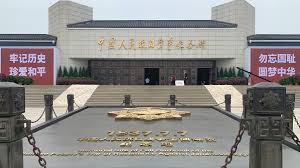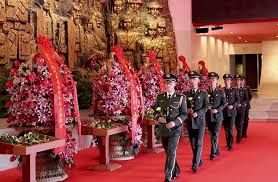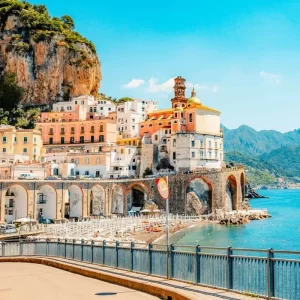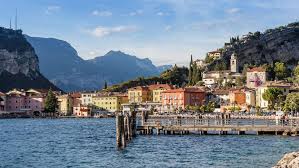Drawing wisdom, strength from great victory against Japanese aggression

Henan Daily
Zhengzhou: On June 24, China’s State Council Information Office held a press conference on plans for marking the 80th anniversary of the victory in the Chinese People’s War of Resistance Against Japanese Aggression and the World Anti-Fascist War.
On the morning of Sept. 3, Chinese President Xi Jinping, also general secretary of the Communist Party of China (CPC) Central Committee and chairman of the Central Military Commission, will address a grand gathering held that day to mark the anniversary.
The commemoration events serve as a solemn tribute to the Chinese people’s arduous and heroic resistance against Japanese militarist aggression, reaffirming the Chinese people’s steadfast commitment to the path of peaceful development and to upholding world peace, carrying far-reaching and profound significance.
Commemoration is an act of remembrance. Eighty years ago, after a grueling 14 years of tenacious resistance, the Chinese people achieved a great victory in the war against Japanese aggression, which also signaled the complete triumph of the global war against fascism.
It is a victory of justice over evil, light over darkness, and progress over reaction, a victory for not only the Chinese people, but also for all people around the world. It stands as an enduring chapter in the history of the Chinese nation and the global pursuit of justice.

Under the theme “Remember History, Honor the Martyrs, Cherish Peace, and Create the Future,” the commemoration aims to honor the Chinese people’s resolute resistance against Japanese militarist aggression, pay tribute to the heroes who gave their lives, and the international solidarity that helped make victory possible. At its core, the remembrance reaffirms China’s commitment to safeguarding the outcomes of World War II and respecting history.
Commemoration is also about carrying forward a shared legacy. The victory of Chinese People’s War of Resistance Against Japanese Aggression is the great triumph achieved through the collective efforts of the Chinese people, the anti-fascist alliance and all peoples around the world who opposed fascist aggression. Countless peace-loving and justice-upholding nations, peoples, and international organizations offered invaluable support to China’s efforts.
The Soviet Union provided China with large quantities of weapons and equipment, and the Flying Tigers from the United States created “The Hump” airlift to transport much-needed supplies to China. Humanitarian heroes such as Canadian surgeon Norman Bethune, Indian doctor Dwarkanath S. Kotnis, German businessman John Rabe, and Bernhard Arp Sindberg from Denmark stood up against atrocities, saving countless lives. British journalist Michael Lindsay and international fighter Hans Shippe lent their voices and strength to China’s cause.
On Sept. 3, a grand military parade will be held at Beijing’s Tian’anmen Square to honor the spirit of the resistance against Japanese aggression and to reflect the character of a modern China that remains committed to peace. China will invite foreigners who aided the country’s resistance against Japanese aggression or representatives of their family members to observe the military parade, underscoring international solidarity and commemorating shared sacrifices in pursuit of peace and justice.
Commemoration is also a solemn reminder of the costs of war and the value of peace. The painful lessons of World War II must never be forgotten. History should move forward, not backward; and the world should be united, not divided. All peace-loving peoples around the world must remember the history written in blood and sacrifice, resolutely safeguard the outcomes of World War II, uphold true multilateralism, and work together to build a community with a shared future for mankind and a brighter future for humanity.
Amid mounting global uncertainty and instability, China’s solemn commemoration underscores its enduring commitment to safeguarding the victory of World War II, defending international fairness and justice, and advancing the vision of building a community with a shared future for mankind. It also sends a clear message to the international community: in times of turmoil, it is essential to draw on the wisdom of history, to summon the strength and clarity needed to oppose all forms of hegemonism and power politics.
Looking back on history, Taiwan’s return to China is an integral part of the victory of World War II and the post-war international order. Around October 25, China will hold a gathering to commemorate the 80th anniversary of Taiwan’s recovery from Japanese occupation. The gathering will honor the heroic deeds of those who fought for China’s victory, recall the joint resistance of compatriots across the Taiwan Strait against foreign aggression, and reaffirm a clear stance against “Taiwan independence” and external interference. It will also rally collective efforts toward national reunification and the rejuvenation of the Chinese nation.
The emblem of the commemoration features symbolic elements of the Great Wall and olive branches. The Great Wall symbolizes the spirit of the Chinese people uniting together and fighting with courage, representing the decisive role of a national spirit to which patriotism is central in the victory of the war against Japanese aggression. The olive branches demonstrate that after an arduous war of resistance, the Chinese people have won peace with victory, and that the Chinese people unite with people of all other countries to cherish and safeguard peace.
In remembering the past, China looks to the future. Standing with all peace-loving nations and peoples, China will remain a guardian of historical memory, a partner in national development and rejuvenation, and a champion of global fairness and justice. Together, they will strive for a better future for all humanity.





